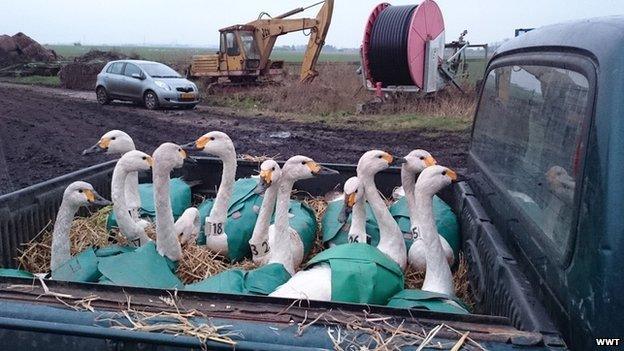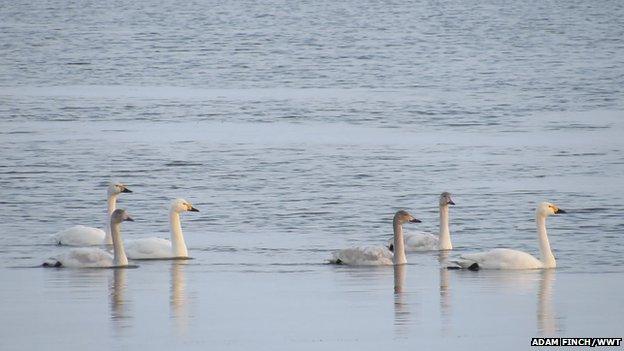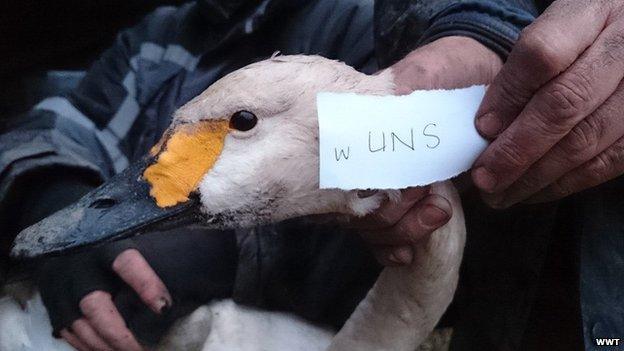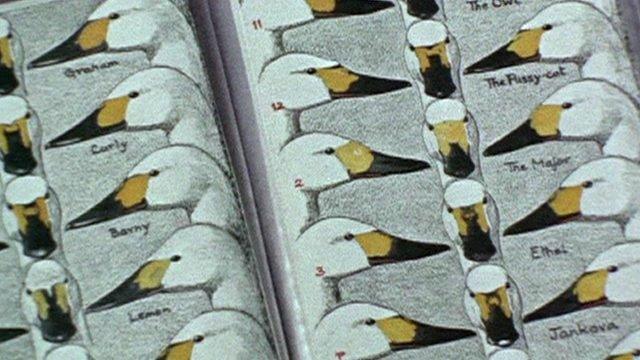Bewick's swans' Arctic migration GPS tracked From Welney
- Published

Some of the swans have been fitted with GPS collars to monitor their migratory routes
Ten swans have been fitted with GPS devices to track their migration from the UK to their breeding grounds in Arctic Russia.
The Bewick's swans will make the 2,500-mile journey from the Wildfowl and Wetlands Trust (WWT) centre at Welney on the Norfolk/Cambridgeshire border.
Bewick's are "the rarest swan in the UK" and their numbers are declining, the trust said.
The project aims to identify threats the birds face during migration.
About 3,000 Bewick's arrive at the trust's site in mid-November each year and begin to head home in February and March.

The swans arrive at the reserve in November
Their route, and the outcome of the 10 tagged birds' journeys, will be monitored by the GPS collars fitted around their necks.
A spokesman said the weight of the collar was "about the equivalent of us walking around carrying a mobile phone".

Bewick's swan numbers are in decline, the trust said
Two of the GPS-tagged birds have already left the reserve for the Netherlands and then on to Germany.
Assistant warden Katy Smith said: "Bewick's swans are a fantastic wetland species and this is a really exciting project to gain insight into their lives whilst providing some essential data to help the populations' survival."
The data gathered from the tracking study will be used to advise wind farm developers on the appropriate locations of turbines in large offshore wind farms, to reduce the collision risk for migrating swans.
The project is being undertaken by WWT for the Department for Energy and Climate Change (DECC).
- Published27 October 2014
.jpg)
- Published11 February 2014
